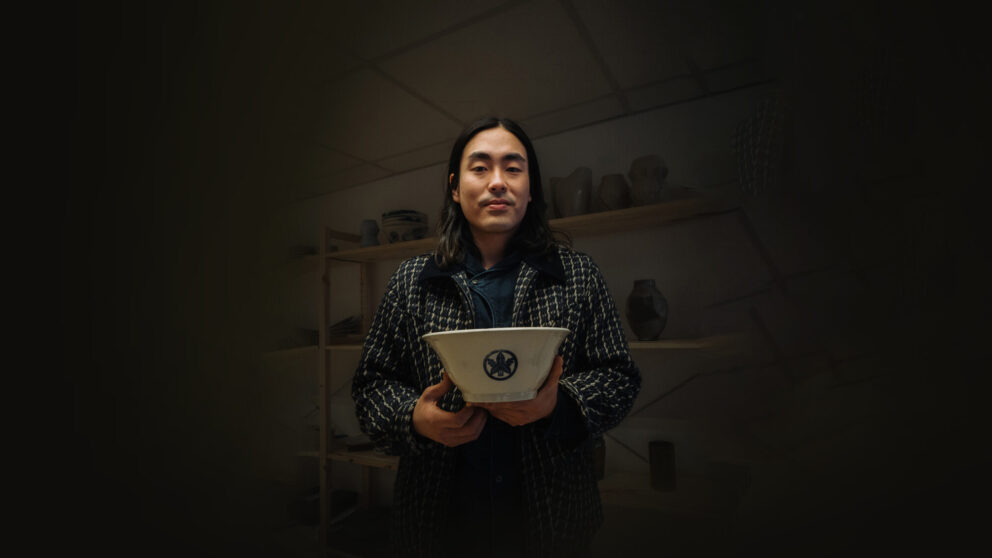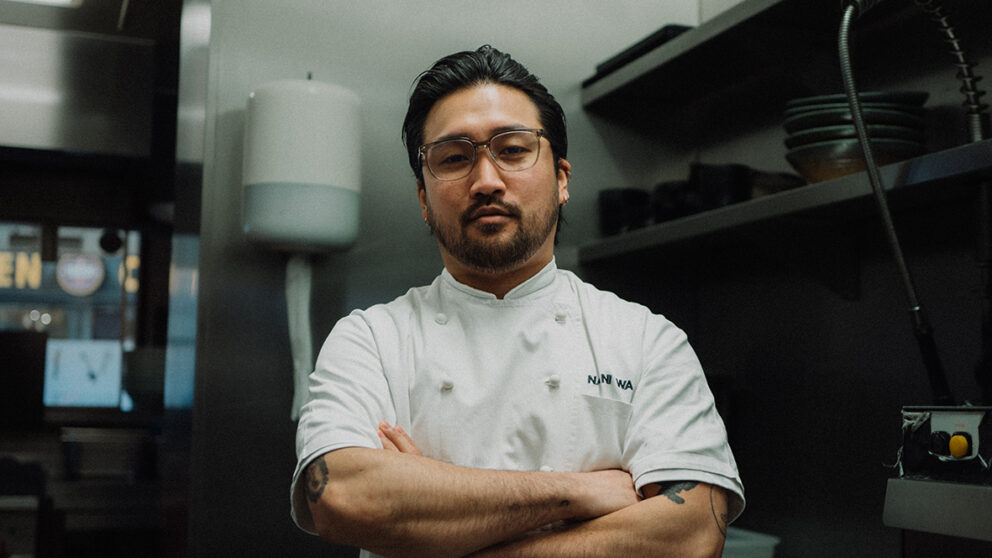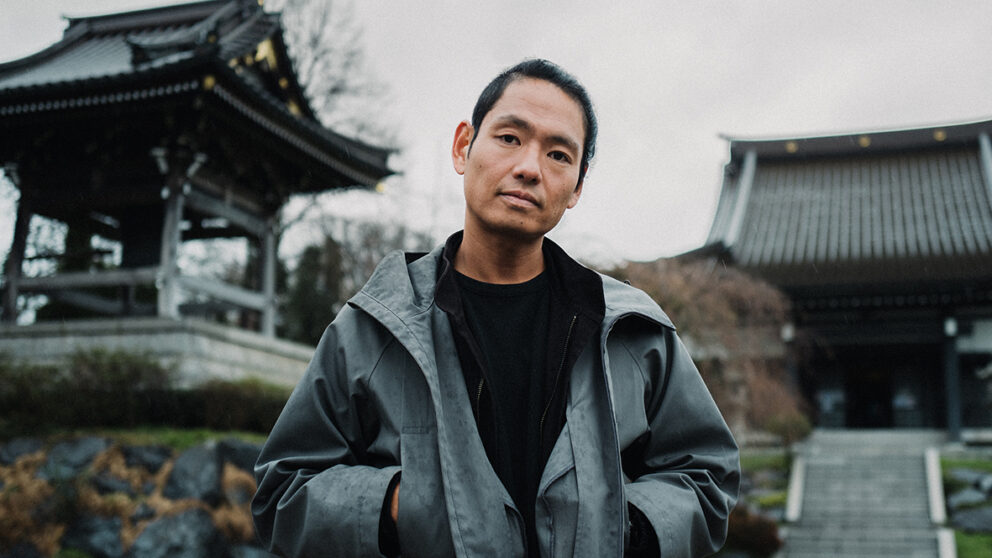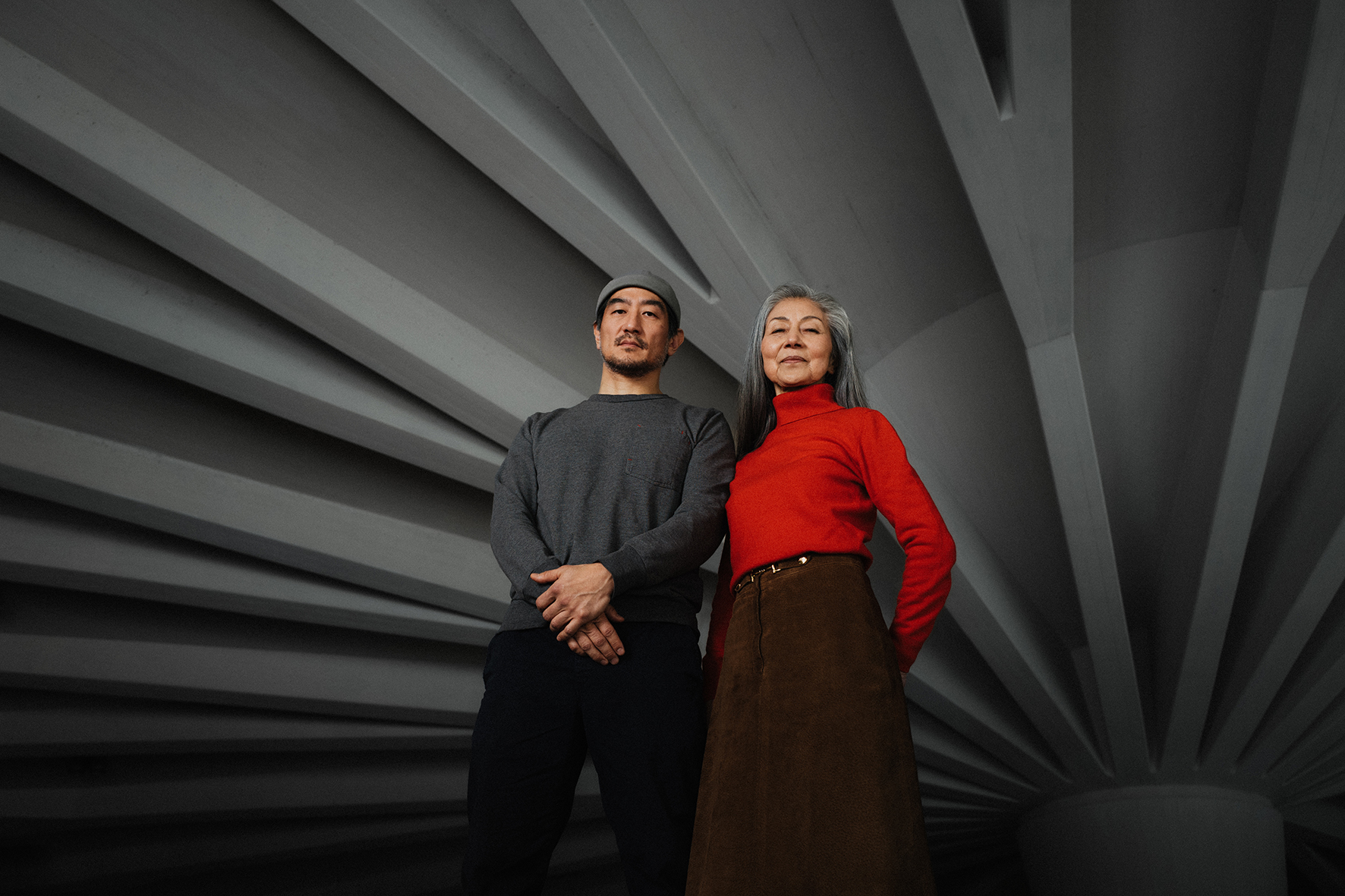
“It doesn't seem like 46 years since we first flew here from Tokyo”
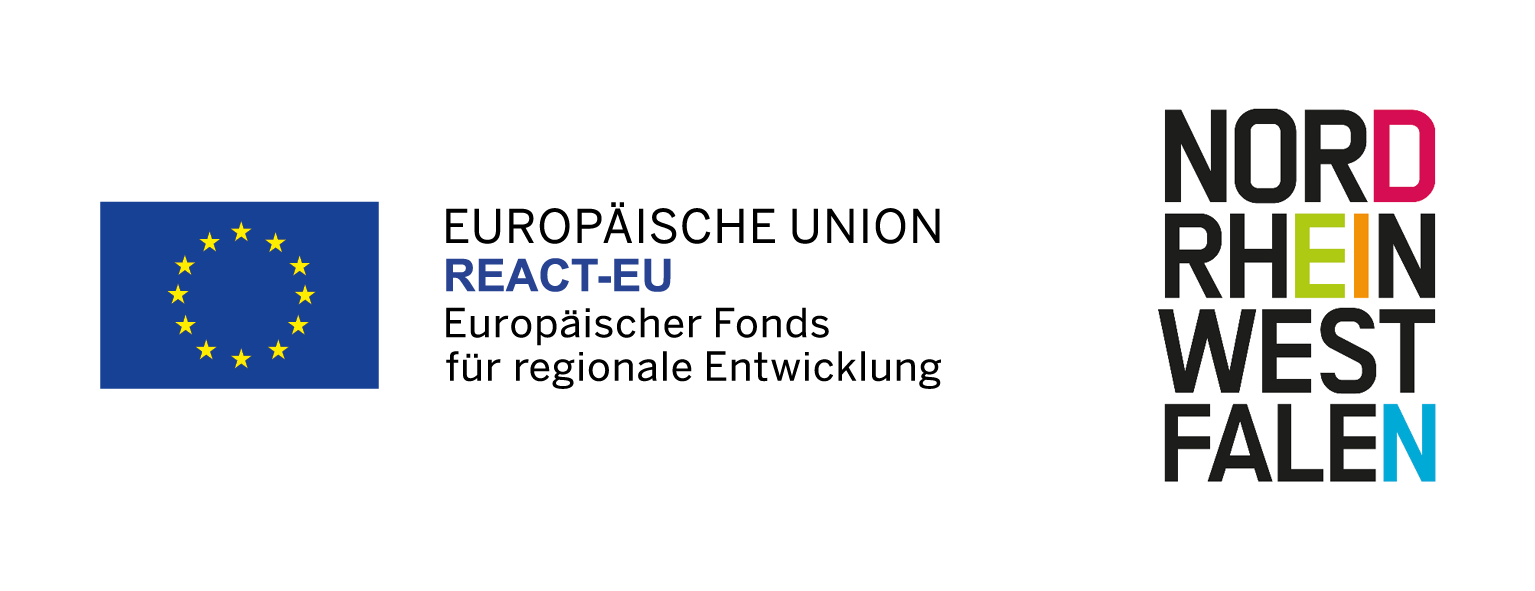
“It doesn't seem like 46 years since we first flew here from Tokyo”
Interview with Kunie and Takao Baba
The Baba family have been living in Düsseldorf for almost 50 years. We interviewed Kunie Baba (79) and her son Takao Baba (49) at the Düsseldorf Schauspielhaus theatre, where they told us how they ended up in Düsseldorf.
Your family has now been in Düsseldorf for three generations. What was behind the decision to move here from Tokyo?
Kunie: My husband had bought a company in Düsseldorf, so we relocated here when Takao was just six months old. We hadn’t actually planned to stay in the city more than a few years. It doesn’t seem like 46 years since we first flew here from Tokyo. [She laughs.] I still feel very happy here. We would go to Japan regularly to visit family. And it was important to me that my children started learning Japanese at an early age.
Takao: Because I was only six months old when I came to Germany, I was always able to switch fairly seamlessly between cultures and languages as a child. I didn’t know anything different. I went to school in Germany, but every year I flew to Japan to visit our grandparents during the summer holidays. As the holidays there didn't start as early as they did here, I would attend a Japanese school for a few days. So I always had an early insight into many of the trends that would eventually reach Germany from Japan, such as manga and video games. I was constantly switching between cultures. And in any case, we spoke Japanese at home.
When I started dancing hip-hop in my teens, I realised that it was definitely an advantage to have experienced such different cultures as a child. That’s because the dance classes brought me into contact with many other cultures from all over the world. It’s typical in urban dance to work with people from different cultural backgrounds.
You’ve been part of the dance scene for several decades now, both as a dancer and as a choreographer, but also by establishing the scene and organising events. How did you get into dance in the first place?
Takao: By chance, I got hold of a mixtape of rap music from a classmate during fourth grade in 1984. By then, Murat had already break-danced to ‘Break Machine’ during the trend’s first big wave. And that prompted me to have a go myself.
Kunie: I remember very clearly that, about that time, an indent began to appear in the ground in the garden and I couldn’t work out how it got there. Then I noticed that Takao was constantly practising head spins out there. He kept going so long that he was almost spinning down into the soil. [She laughs.] I’ve always loved that Takao is so passionate about his interests. I was a ballet dancer myself for a long time and so can well understand his enthusiasm for dance. Nowadays, I teach yoga at Tanzhaus NRW.
Takao: When we started hosting events here in Düsseldorf in 2004, with the aim of expanding and unifying the scene, there was virtually nothing available in the way of urban dance, apart from Tanzhaus NRW. Paris was much further ahead in this regard. We had contact with the organisers of Juste Debout, which was the European dance battle event. This meant we were the first in Düsseldorf to bring together the different urban dance styles at one event. Juste Debout Germany was the preliminary competition for the Paris event.
Juste Debout Paris filled arenas, sometimes with up to 16,000 spectators – so it was a really big deal. It brought together dancers from the various styles, such as breakdancing, popping, locking, house dance, krumping, funk style and hip-hop. These styles were already represented at smaller events, known as jams, but only at our events did they feature together on a large scale. Working with the dancer Amigo from the Flying Steps crew, I then created the Funkin’ Stylez event in Düsseldorf, which was the first big independent event in the city. The international competition at this battle event between dance crews from countries such as Germany, Belgium and France constantly raised the bar over a period of about ten years.
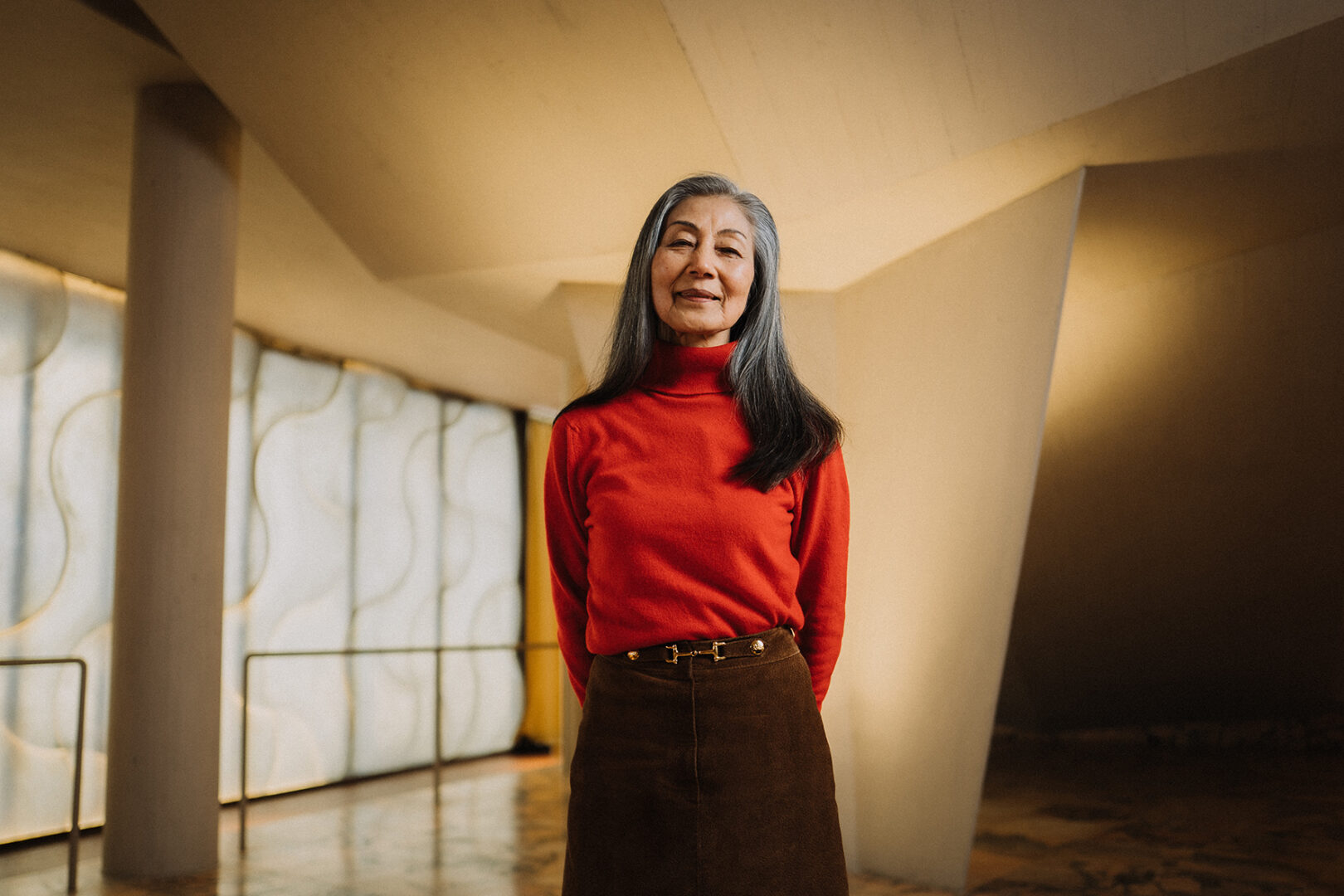
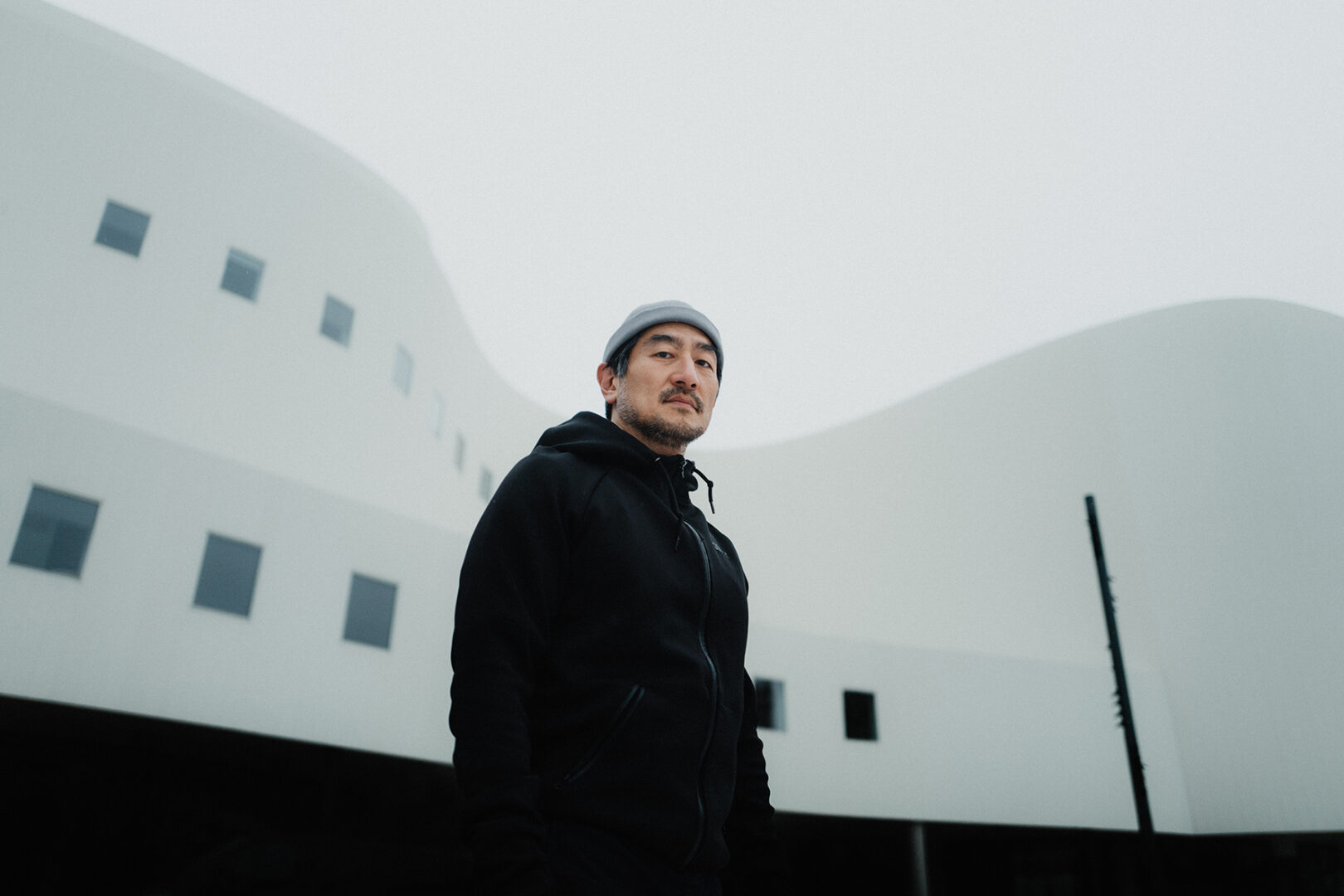
Were there ever any moments of connection between your work as a choreographer and dancer and your German-Japanese heritage?
Takao: I often visited Japan as an adult and was in contact with Japanese dance crews. We always felt that the Japanese dance crews were quite a bit ahead of us in terms of the number of talented dancers, the standard of dancing, and the size and popularity of the events. It was always my dream to collaborate with Japanese organisers. At some point, we formed a partnership and held the preliminary competition for Dance Delight in Japan at Düsseldorf’s annual Japan Day. Dance Delight is a huge dance event that was first held in 1994. The local winners in Düsseldorf then got to fly to Japan and show what they could do there.
Are there any places in Düsseldorf with particularly strong ties to Japanese culture?
Kunie: The EKO Centre in Niederkassel is very special, and there were already quite a few Japanese residents in that area before it opened in 1993. The atmosphere of the temple complex and the Japanese garden is really lovely.
Takao: The complex is also home to a Japanese kindergarten, which my children attended. And from a visual perspective alone, I think it’s a special place not only for Japanese people but also for Germans and visitors from abroad. The culture can also be experienced in Düsseldorf’s countless Japanese restaurants. These days, we take it for granted that there are so many authentic places to eat. That certainly wasn’t the case when my mother moved here in 1979.
Kunie: Exactly. Nippon-Kan was the first Japanese restaurant in Düsseldorf and remained the only one for a long time, I believe. Kikaku opened later on. The choice of restaurants in Düsseldorf didn’t get as big as it is today until the 1990s. Unfortunately, neither of these restaurants exists any more, but there are plenty of others covering a huge range.
Takao: Besides all the authentic Asian supermarkets, restaurants and shops, it’s the everyday things that count for me. For most of my life, I’ve been going to non-Japanese barbers. But they would never cut my hair well, and I was never happy with the result. Asian hair has a slightly different structure to European hair. Maybe that was the reason. Eventually, I found out that Düsseldorf actually has Japanese hair salons, and I’ve since become a loyal customer. There are also little things like Japanese bakeries, where the bread is that little bit fluffier and the sweet pastries are slightly different.
Title image: Düsseldorf Tourism
The title image and this article are supported by REACT-EU.

